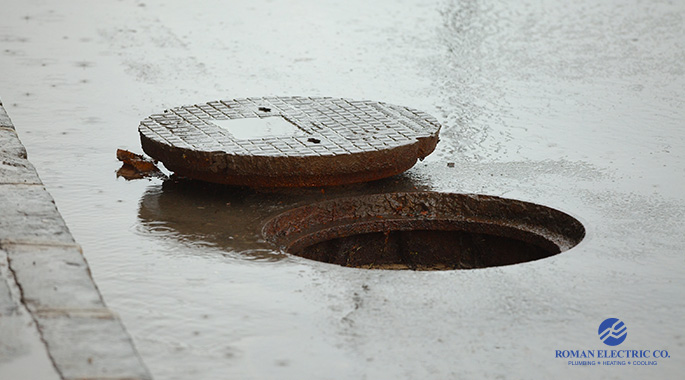Dealing with a sewer backup is never a pleasant experience. It can cause significant damage to your property and disrupt your daily routine. Understanding the common causes of sewer backups and knowing some easy fixes can help you prevent and address this issue effectively.
Common Causes of Sewer Backups
1. Clogs from Foreign Objects
One of the most common causes of sewer backups is clogs caused by foreign objects being flushed down the toilet or washed down the drains. Items such as paper towels, sanitary products, diapers, wipes, grease, and excessive amounts of toilet paper can accumulate in the pipes and create blockages.
To prevent clogs from foreign objects, it’s important to educate everyone in your household about what should and shouldn’t be flushed down the toilet or washed down the drains. Installing drain screens or strainers can also help catch debris before it enters the pipes.
2. Tree Root Infiltration
Tree roots are attracted to sources of water, including sewer lines. Over time, tree roots can grow into the pipes through small cracks or joints, causing blockages and backups. This is especially common in older homes with clay or cast iron pipes.
To prevent tree root infiltration, avoid planting trees near your sewer lines. If you already have trees near your sewer lines, consider regular inspections and maintenance to identify any potential issues before they become major problems.
3. Structural Damage to Pipes
Over time, pipes can deteriorate due to age, corrosion, shifting soil, ground movement, or heavy traffic above them. When pipes become damaged or collapsed, sewage cannot flow freely and backups may occur.
Regular inspections by a professional plumber can help identify any structural damage to your pipes early on. Prompt repairs or replacements can prevent sewer backups and more extensive damage.
Easy Fixes for Sewer Backups
1. Plunging
In some cases, a simple plunge can dislodge minor clogs and restore proper flow in the pipes. Use a plunger specifically designed for toilets or drains to create suction and push the clog through.
2. Boiling Water
Pouring boiling water down the drain can help break up grease and other organic materials that may be causing a blockage. Be cautious when using boiling water, as it may damage certain types of pipes.
3. Chemical Drain Cleaners
Chemical drain cleaners can be effective in breaking up clogs temporarily, but they should be used with caution. These products contain harsh chemicals that can damage pipes and harm the environment. Follow the instructions carefully and consider using safer alternatives first.
When to Call a Professional Plumber
While these easy fixes may work for minor clogs, it’s important to know when to call a professional plumber. If you’re experiencing frequent or persistent sewer backups, it’s likely there is a larger issue at hand that requires professional expertise.
A professional plumber will have the necessary tools and knowledge to diagnose and address the root cause of your sewer backups. They can perform thorough inspections, use specialized equipment to clear blockages, repair damaged pipes, and provide long-term solutions to prevent future backups.
Contact Roman Electric for All Your Sewer Needs in Milwaukee, WI and the Surrounding Areas
Don’t wait until a sewer backup becomes a major problem. Contact a professional plumber at Roman Electric at the first signs of trouble to minimize damage and ensure the proper functioning of your sewer system.

